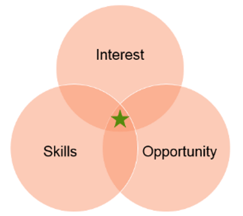
We are in the middle of what many are calling “The Great Resignation.” The pressures of COVID and the disruptions caused by new, remote working conditions have made millions decide to leave their jobs to look for something else. As a result, hiring has become a “seller’s market,” especially in the B2B technology world.
There are lots of reasons people leave their jobs: too much work for too little pay; no visible career path; unsupportive management structures, etc. As someone hiring today, however, I’m very focused on a bigger question: What makes a person stay at a company?
As both a manager and an employee, I’ve long relied on a four-letter word – CAVE – to describe the type of workplace I want to be in and the kind I want to create for my team. To be clear, I am not talking about a dark place you use to take your afternoon siestas at work. Nor am I talking about a large, dark hole in the side of mountain where bears hibernate for the winter months.
CAVE is an acronym that stands for the four critical elements of a workplace where people want to work. These elements aren’t meant to be written on a wall or trotted out during quarterly recognition ceremonies. Instead, they are elements of a job that people should experience at work on a daily basis and that I myself have experienced at the jobs I’ve loved the most.
CAVE stands for: Career Development, Appreciation, Value, and Empowerment.
Let’s take a closer look.
C is for “Career Development”
All companies talk about career paths when you first come on board. And each year, during your review, you and your manager discuss what you need to work on to take the next step down your path.
You will notice that “C” here does not stand for career path. Why is that? All too often, a career path is a pre-defined track focused on promotions, job title changes and incremental salary increases – junior developer, senior developer, team lead, manager, director and so on. It’s not about developing skills or pursuing a series of more challenging projects. It’s about moving up the corporate ladder within a particular company. This may work for some, but to avoid a truly stagnant career, you need to develop your own pathway.
 That’s why I focus on career development. Career development conversations focus on someone’s interests, their skills and the kinds of opportunities that will help them grow.
That’s why I focus on career development. Career development conversations focus on someone’s interests, their skills and the kinds of opportunities that will help them grow.
A workplace focused on career development will, first of all, offer work that piques your interest. If the work isn’t inherently interesting, why are you there? The role you have should allow you to apply your skills and expertise, but it must also allow you to build on these skills and even develop new ones. In order to grow and develop your skills, of course, you also need opportunities to do new things and even pursue new career directions.
You bring your interests and your skills to your new role. Your manager or supervisor needs to focus on finding the right opportunites to apply an develop them.
A is for “Appreciation”
There are two types of appreciation – monetary and non-monetary – and they both matter.
Monetary appreciation is top of mind for everyone. You may say, “Not for me!” But then I’m going to say, “You’re lying.” Let’s face it, you need to make sure you get paid market value (or better!) for what you do.
Money isn’t the only way that companies can and should show appreciation, though. It can take the form of flexibility in your schedule and respect for work-life-balance as well as perks like coffee, snacks, lunches, gym memberships, bringing your dog to work and so on. Appreciation also comes in the form of recognition for excellent work you’ve done, opportunities to speak at events or webinars on behalf of the company and company sponsored training or certification courses.
For me, appreciation does not have to involve praise during an all-hands meeting. Sometimes appreciation is shown by the actions people take. Years ago, I worked at a start-up. After working 16+ hour days for two-straight years, I was burnt out and needed a change. A few years after I left, my former boss – yes, the one who made me work 16+ hour days for 735 days (but who was counting!) – asked if I wanted to come back. I did.
Was I crazy to go back? Maybe. But his invitation was a sincere reflection of the value he saw in my skills and experience. I felt appreciated every day after that.
V is for “Values”
People often confuse values and culture. To me, the difference is this: A company’s values do not change (or at least not very often), but a company’s culture will over time. The values I look for and promote are: respect, empathy and accountability. These apply to the way employees up and down the organization behave. They certainly influence the culture – the way your business operates and behaves – but they go deeper.
If you have the respect of your management and peers, and folks are held accountable for their day-to-day responsibilities, then you have found an organization with some sound values.
When you are just a social security number, when the work you do and the way you contribute is not respected, it doesn’t matter how many pizza parties the company throws. It’s time to go.
E is for “Empowerment”
Empowerment does not mean that when you speak, others obey. It does mean, when you speak your colleagues respect your opinion and engage in a professional and progressive dialogue with you, whether they fully support or have a different view.
Do you have a voice in your organization? Are you encouraged to use it? Is it heard? If you answered yes to these questions, then you are empowered within your organization.
Throughout my career I have prided myself on building teams with diverse backgrounds. My team members have attended different schools or universities, have held different certifications, and engaged in different hobbies outside of work. I’ve always believed that an important cornerstone of high performing team is that the members possess a broad range of skill and experience and feel empowered to contribute based on what they bring to the table.
I’ve long agreed with words of Russell Ackoff, who said, “The performance of the whole is never the sum of the performance of the parts taken separately, but is the product of their interactions.”
A commitment to empowerment makes those interactions possible.
What’s your CAVE?
I developed my CAVE approach to the workplace over 20+ years of experience. What’s your approach?
More importantly, what sort of opportunity are you looking for?






